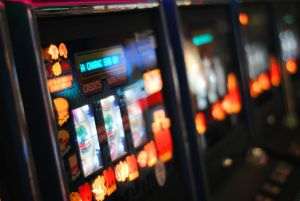• Claudiu Cazacu: "If we rule out the possible influence of other stress factors for the markets, within a 6-12 months period, a favorable decision could lead to two-digit gains for the BSE indexes"
• Dragoş Cabat: "Once the emerging market status is obtained, the Romanian stock market will enter a virtuous circle, compared to the vicious cycle it is in now"
For the first time since the beginning of its monitoring in 2016, the Romanian market meets all the requirements asked by FTSE Russell, both the quantitative and qualitative requirements, according to the officials of the Bucharest Stock Exchange (BSE), and the analysts consulted by the BURSA newspaper think that there are reasonable chances that the Romanian market will enter the emerging market category.
The ratings firm of the London Stock Exchange will post today, after the closing of the US markets, its annual evaluation which concerns a possible transfer of the Romanian market from the frontier markets to the emerging markets category.
In September last year, Romania was kept by FTSE Russell on the country watchlist for a potential reclassification. Then, the agency improved the criteria from "not met" to "restricted", as it feels that significant improvements in terms of turnover have occurred, as well as in the case of outside the market transactions.
Claudiu Cazacu, chief-analyst of XTB România, told us that in his opinion, the odds of an upgrade are currently slightly above 50%.
As for the possible effects of a positive decision, he told us: "Normally, the impact of a positive decision issued by FTSE Russell will be positive for the market. On one hand, the initial impact of the news, which should have been felt in the first trading session, after the decision of the ratings firm. The effect could be felt also perhaps in one or two of the following sessions. Meanwhile a possible tempering of an enthusiasm is possible".
The XTB România analyst said: "Then, there is an impact which will be seen in time, as the funds which have exposure to the emerging markets will start buying liquid stocks from our exchange, according to the weight which Romania will have in the indexes which track such markets. There will be a buying pressure, with an ceteris paribus beneficial impact (ed. note: if the other variables remain constant) on the BSE indices, which does not necessarily mean an upward trend.
Acesta depinde de tendinţa pieţei din momentul în care vor avea loc intrările de capital. At any rate, the indices of the Romanian stock market will see a better evolution with a positive decision by FTSE than without it".
• Claudiu Cazacu: "An effect of the reclassification would be that some funds would be more open to buy Romanian stocks, according to their investment policies"
Claudiu Cazacu also mentioned that another effect, which will be visible in a more distant horizon, concerns the Romanian market's perception. Thus, without being required to do so by their prospectus, some investment funds will be more "open" to buying Romanian shares, according to their investment policies.
"Overall, if we exclude the possible influence of other factors of stress for the markets, both domestic and foreign, within within a 6-12 months period, a favorable decision could lead to two-digit gains for the BSE indexes".
Still, Mr. Cazacu pointed out that we are dealing with a possible reclassification decision of the FTSE Russell.
"The impact is more important for the market than it would seem in the case of a decision in that regard from the MSCI", the analyst concluded.
Dragoş Cabat, economic analyst and member of CFA România, told us that from his point of view, the impact of the Romanian stock market to the emerging markets category is more important than it seems.
"There are foreign institutional investors which have restrictions from entering certain markets, but once the Romanian market gets this statute formally, there will be significant capital inflows, directed towards the acquisition of stocks listed on the BSE. Moreover, we will enter the ranks of Central European markets, with more visibility", said Dragoş Cabat.
The analyst also told us that given these conditions, it is possible for the liquidity to even see an exponential growth. Mr. Cabat said that right now, our market is in a vicious circle.
He said: "Because we do not have many companies, with a high enough free-float, investors aren't coming and we do not meet the requirements to be an emerging market. On the other hand, once that status is achieved, the Romanian market will become more attractive for taking companies public, supply will increase, there will be new money entering the market and a vicious circle will enter, over the one we have now".
Overall, foreign institutional investors which want to get exposure to an emerging market use an ETF, an investment fund ("exchange-traded fund") which, unlike the mutual funds, is traded on the stock exchange, like stocks.
According to etfdb.com, there are a total of 78 ETFs which track shares listed on emerging markets, of which the biggest fund, in terms of assets, is Vanguard FTSE Emerging Markets ETF.
Exchange traded funds which track emerging markets generally have far bigger assets under management than those that track frontier markets, such as the two main ETF-uri which also have exposure to our markets, namely iShares MSCI Frontier 100 ETF and Invesco Frontier Markets ETF.
According to data from etfdb.com, together, those two manage combined assets of approximately 550 million dollars, unlike assets of approximately 62.55 billion dollars under the management of Vanguard FTSE Emerging Markets ETF, a fund which takes exposure to the emerging markets depending on their weight in the FTSE Emerging Index.
The next type of "exchange-traded fund" which takes exposure to the FTSE Emerging Index has under management assets of 1.22 billion dollars.
Also, the medium volume over the last three months for the Vanguard ETF amounts to approximately 11.66 million dollars/day, according to the analysis provided by the aforementioned source, while the MSCI Frontier 100 ETF has a medium daily turnover of a little over 0.11 million dollars, for the last three months.
In the MSCI ETF of the frontier markets, which manages assets of approximately 490 million dollars, Banca Transilvania has a weight of 3.31%, the biggest for an issuer on the local market, while the exposure to Romania of that ETF was 8.56%, on September 20, 2019. The other local shares of the fund are Petrom (1.68%), Romgaz (1.48%), BRD (1.03%), Electrica (0.57%), and Transgaz (0.53%).
The biggest weight as part of Vanguard FTSE Emerging Markets ETF comes from shares in the Chinese market, with a weight of approximately 33%. The weight which the six local titles would have in the FTSE Emerging Index, in the case of a potential reclassification, is not known, but Hungary, which has four companies represented, has a weight of 0.35%, and the Czech Republic, with five, has a weight of 0.18%.


























































